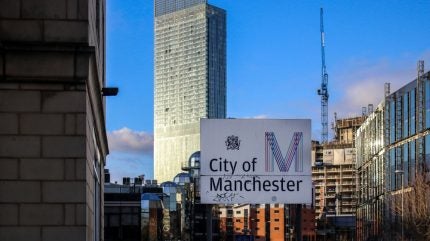
Local authorities hold the key to addressing the climate crisis. This is the main message from a recent report from Key Cities – the national network representing 27 urban centres across the UK. It urges the government to provide more powers, clarity, capacity and funding to accelerate progress.
Levelling Up, Emissions Down reveals how cities are driving positive climate action, despite a huge disconnect between local action and national policy in the UK.
The report calls on government to clearly define the responsibilities of local authorities, provide devolved funding with net-zero powers to local areas, and support in upskilling the workforce.
“The report shows that local authorities must be at the centre of efforts to address the climate emergency, which can only be achieved if we are given more powers, clarity, capacity and funding,” said Cllr John Merry, chair of Key Cities and deputy mayor of Salford City Council. “The government’s own Net Zero Review highlighted that significant action is required if we are to meet national and local net-zero targets, but to do this devolution needs to go further and deeper.
“As we look to reach net zero and level up communities across the country, we urge those in Westminster to empower local authorities so they can better serve their people and the planet.”
The report presents the findings of a programme of research, which involved extensive engagement with the 27 Key Cities, to assess progress to net zero and identify barriers and opportunities for improvement across the UK. With a collective population of 6.2 million people and contributing £150bn ($186.5bn) to the economy, the experience of Key Cities is highly relevant to the rest of the country.
It found that all cities have net-zero strategies in place and are making strides against a challenging political and economic backdrop. Many are exploring and implementing a range of environmental initiatives, from harnessing hydrogen for business to building solar farms; instigating partnerships across the public sector, business and community groups; and facilitating knowledge sharing across councils.
However, progress is being hindered by a lack of powers, clarity, capacity and funding. For one, the role of local authorities in delivering net zero is not well articulated, leading to different levels of coverage and making it harder to earmark funds for investment.
Moreover, local authorities already face long-term funding challenges, but because net zero is not a statutory responsibility, it falls victim to other pressing matters. There is an acute need for more capacity in order to scale up activity, but a lack of green skills across the labour market is posing a problem.
The report specifically calls on the government to, first of all, define the role of local government in achieving net zero and provide more long-term, devolved funding with net-zero powers to local areas, covering services such as the installation of electric vehicle charging infrastructure and retrofittings. It should also create a monitoring framework for accountability.
Second, it urges Westminster to invest in capacity and specialist skills by offering targeted support to train and develop staff across local authorities. In short: it should build on the Green Jobs Taskforce and provide additional specialist capacity through combined authorities or net-zero energy hubs.
Last, the report calls for the establishment of new regulations within an investment ecosystem. More specifically, the distribution network operators should be required to align their plans with local development plans, alongside an upgrade of the grid to handle increased renewable energy generation.



